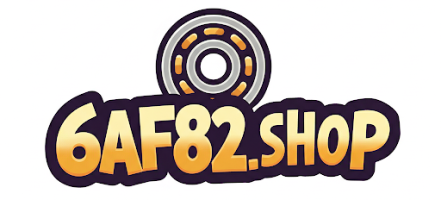Choosing the right supplier for bearings, especially a company like Bartlett Bearing Company, can be a daunting task. The quality of bearings directly impacts the performance and longevity of machinery, making the selection process crucial. This article outlines five practical solutions to help you navigate the supplier selection process and ensure you get the best possible bearings for your needs.
Before diving into supplier selection, it’s essential to understand what Bartlett Bearing Company offers. Are you looking for specific types of bearings, like ball bearings, roller bearings, or specialized bearings for unique applications? Knowing their product range and specialization will help you narrow down potential suppliers.
Identifying Your Specific Bearing Requirements
The first step is to clearly define your bearing requirements. This includes understanding the load, speed, temperature, and environmental conditions your bearings will be subjected to.
Consider the following factors:
- Load Capacity: Determine the maximum load the bearing needs to withstand.
- Speed Requirements: Understand the operational speed range.
- Operating Temperature: Assess the temperature at which the bearing will operate.
- Environmental Conditions: Consider exposure to moisture, dust, chemicals, or other contaminants.
Documenting these specifications is crucial for communicating your needs to potential suppliers.
Leverage Online Resources and Reviews
The internet is a valuable tool for researching potential suppliers of Bartlett Bearing Company products. Look for online directories, industry forums, and review websites.
Here are some resources to consider:
- Industry Associations: Check if Bartlett Bearing Company or its suppliers are members of relevant industry associations, such as the Bearing Specialists Association (BSA).
- Online Reviews: Search for customer reviews on websites like Google Reviews, Yelp, and industry-specific platforms.
Pay attention to both positive and negative feedback to get a balanced perspective.
Once you have a list of potential suppliers, it’s time to assess their qualifications. This involves evaluating their experience, certifications, and quality control processes.
Evaluating Experience and Expertise
Look for suppliers with a proven track record and extensive experience in the bearing industry.
Consider these factors:
- Years in Business: A longer history often indicates stability and reliability.
- Industry Focus: Do they specialize in the types of bearings you need?
- Technical Expertise: Do they have engineers and technicians who can provide technical support?
Don’t hesitate to ask potential suppliers about their experience with specific applications similar to yours.
Checking for Relevant Certifications
Certifications demonstrate a supplier’s commitment to quality and adherence to industry standards.
Look for certifications such as:
- ISO 9001: A quality management system standard.
- ISO 14001: An environmental management system standard.
- TS 16949: A quality management system standard for the automotive industry (if applicable).
Certifications provide assurance that the supplier has established processes for quality control and continuous improvement.
Understanding Quality Control Processes
A robust quality control process is essential for ensuring the reliability of bearings.
Inquire about the supplier’s quality control measures, including:
- Incoming Material Inspection: How do they verify the quality of raw materials?
- In-Process Inspection: What checks are performed during the manufacturing process?
- Final Inspection: What tests are conducted on finished bearings?
- Traceability: Can they trace the origin of each bearing?
Visiting the supplier’s facility to observe their quality control processes firsthand can be beneficial.
After assessing supplier qualifications, it’s time to obtain quotes and evaluate pricing. However, price should not be the sole determining factor.
Requesting Detailed Quotes
Request detailed quotes from multiple suppliers, specifying your bearing requirements and quantities.
Ensure the quotes include:
- Unit Price: The cost per bearing.
- Bulk Discounts: Any discounts for larger orders.
- Lead Time: The time required to deliver the bearings.
- Shipping Costs: The cost of shipping.
- Payment Terms: The payment schedule and methods.
Compare the quotes carefully to identify the most cost-effective option.
Considering Total Cost of Ownership
While price is important, it’s crucial to consider the total cost of ownership. This includes not only the initial purchase price but also the long-term costs associated with bearing maintenance, repair, and replacement.
Factors to consider:
- Bearing Lifespan: Higher-quality bearings may last longer, reducing replacement costs.
- Maintenance Requirements: Some bearings require more frequent maintenance than others.
- Downtime Costs: Bearing failures can lead to downtime, which can be costly.
Investing in higher-quality bearings from a reputable supplier like Bartlett Bearing Company may result in lower total cost of ownership in the long run.
Choosing a supplier is not just about finding the lowest price; it’s about building a long-term relationship based on trust and mutual benefit.
Emphasizing Communication and Collaboration
Effective communication is essential for a successful supplier relationship.
Establish clear lines of communication and ensure that:
- Regular communication: Maintain regular contact with your supplier to discuss your needs and address any issues.
- Responsiveness: Choose a supplier that is responsive to your inquiries and requests.
- Open dialogue: Encourage open and honest communication to resolve any challenges.
A collaborative approach can lead to better outcomes for both parties.
Negotiating Favorable Terms
Negotiate favorable terms with your supplier, including pricing, payment terms, and delivery schedules.
Consider negotiating:
- Volume Discounts: Discounts for larger orders.
- Early Payment Discounts: Discounts for paying invoices early.
- Consignment Inventory: The supplier holds inventory at your facility until you need it.
Negotiation can help you secure better pricing and terms.
My Experience and Insights
From my years of experience in the manufacturing industry, I’ve learned that choosing a bearing supplier is akin to choosing a business partner. It’s not just about the product; it’s about the relationship. I’ve seen firsthand how a strong supplier relationship can lead to improved product quality, reduced downtime, and ultimately, increased profitability.
One thing I’ve found particularly useful is visiting the supplier’s facility. Pictures and brochures can be deceiving. Seeing the operation firsthand gives you a real sense of their capabilities and commitment to quality. For example, I once visited a potential supplier who had spotless floors and organized workspaces. It showed me they paid attention to detail, a trait I wanted in a supplier.
Unconventional Wisdom in Bearing Selection
Most people focus solely on the technical specifications of bearings. While important, I believe the intangible aspects of a supplier are equally crucial. Do they understand your business? Are they willing to go the extra mile to help you? Do they proactively offer solutions to potential problems?
I also recommend building a relationship with the supplier’s technical team. They can provide valuable insights and help you optimize your bearing selection for specific applications. In one instance, I collaborated with a supplier’s engineer to modify a bearing design, resulting in a 20% increase in lifespan.
Building a long-term partnership with a supplier that understands your business and is committed to your success is critical. Regular communication, open dialogue, and a willingness to collaborate can lead to mutually beneficial outcomes. Choosing a reliable supplier, like one that carries Bartlett Bearing Company bearings, is an investment in your machinery’s future and your company’s success.
By following these five solutions, you can increase your chances of selecting the right supplier for your bearing needs and ensure the reliability and performance of your equipment.
| Factor | Description | Importance |
|---|---|---|
| Bearing Specs | Load, speed, temperature, environment | High |
| Supplier Experience | Years in business, industry focus, technical expertise | High |
| Certifications | ISO 9001, ISO 14001, TS 16949 | Medium |
| Quality Control | Incoming inspection, in-process inspection, final inspection, traceability | High |
| Pricing | Unit price, bulk discounts, lead time, shipping costs, payment terms | Medium |
| Communication | Regular contact, responsiveness, open dialogue | High |
| Relationship | Trust, mutual benefit, collaborative approach | High |
Welcome to our hub for all things bearings! Whether you're an engineer, a student, or simply curious, we provide in-depth knowledge, the latest news, and insightful articles covering a wide range of bearing types, applications, and industry trends. Explore our resources to enhance your understanding and stay informed about the world of bearings.

